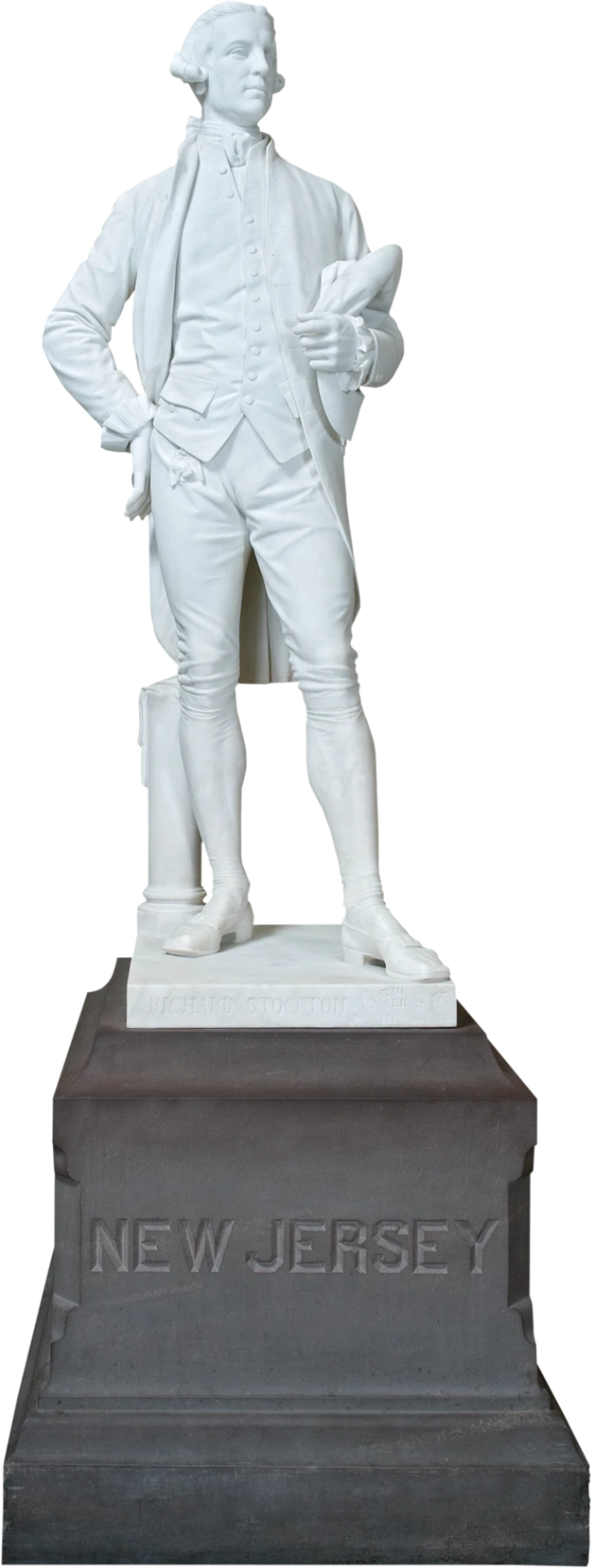Richard Stockton
Crypt
Henry Kirke Brown (completed by H.K. Bush-Brown) (1888)

About This Statue
An illustrious lawyer, jurist, legislator, and signer of the Declaration of Independence, Richard Stockton was born on October 1, 1730. He once wrote, "The publick is generally unthankful, and I never will become a Servant of it, till I am convinced that by neglecting my own affairs I am doing more acceptable Service to God and Man."
- Stockton served as a trustee of the College of New Jersey (Princeton).
- In 1768 Stockton was appointed to the governing Council of New Jersey.
- He was later (1774) appointed to the New Jersey Supreme Court.
- He first took a moderate stance in the troubles between the colonies and England. He did not favor separation; he suggested in 1764 that some colonial members be appointed to the Parliament.
- However, he changed his position when the controversy over the Stamp Act arose.
- In 1774 he drafted and sent to Lord Dartmouth "a plan of self-government for America, independent of Parliament, without renouncing allegiance to the Crown."
- In 1776 Stockton was elected to the Continental Congress, where he took a very active role.
- Shortly after he signed the Declaration of Independence, he was taken prisoner by the British.
- Although he remained in prison for only a month, his health was broken. He became an invalid and died at Princeton on February 28, 1781.




